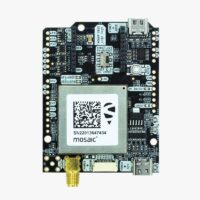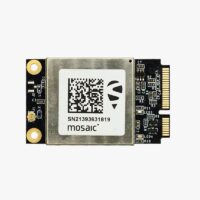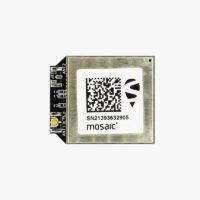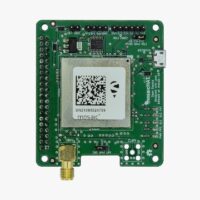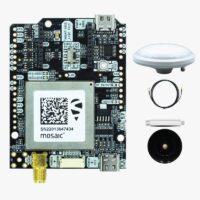Antijamming and Antispoofing receivers: results from JammerTest


In an era where GNSS reliability is threatened by jamming and spoofing, ensuring the resilience of navigation systems is critical. For applications like reference networks and drone surveillance, the degradation or loss of GNSS signals can be catastrophic.
What is Jamming and Spoofing?
Jamming is a interference of the GNSS signals caused by the emission of radio frequency noise. This can lead to loss of the navigation and timing information provided by GNSS receivers, affecting their accuracy and reliability.
Spoofing occurs when a malicious attacker feeds wrong signals into a GNSS receiver to hijack its positioning output. Spoofing is a “smart” form of GPS interference. During a spoofing attack, the GPS receiver reports wrong positioning.
Why Resilience in GNSS Receivers Matters
ArduSimple aims to provide future-proof solutions to ensure uninterrupted operations even in challenging conditions.
The simpleRTK3B Series receivers, powered by Septentrio’s Mosaic-X5 module, offer high resilience against GNSS jamming and spoofing. Today, we share a short summary of Septentrio’s performance during JammerTest 2023 in Norway, a pivotal event that simulates live interference conditions. Full article is available here.
Highlights from JammerTest
Septentrio’s receivers with AIM+ anti-jamming and anti-spoofing technology were subjected to various interference scenarios, ranging from simple jammers to sophisticated spoofing attacks. The results were impressive:
AIM+ detects and mitigates GNSS jamming: In real-time GNSS interference, the Septentrio receiver on the test car can provide accurate positioning, while the competitor receiver will lose positioning after a period of time.
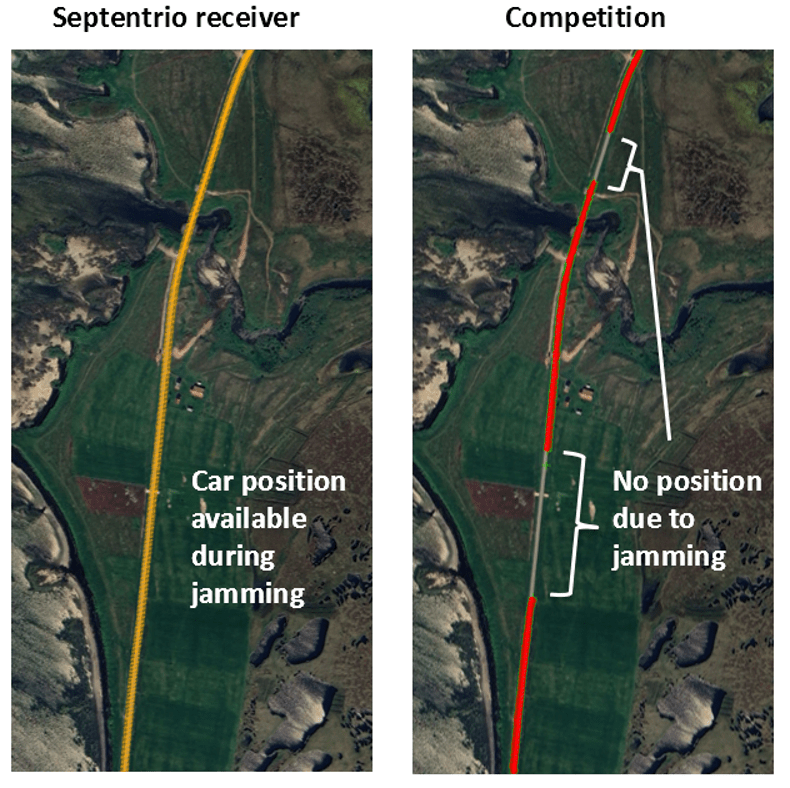
AIM+ detects, flags and mitigates GNSS spoofing: Septentrio receiver (orange tracks) mitigates GNSS spoofing and shows accurate positioning along the coastal road, while competition receivers (blue, green, red track) are spoofed and show erroneous positions.

Septentrio receivers consistently detect GPS spoofing: The red bars indicate undetected spoofed positioning with large errors. Septentrio receivers use several mechanisms simultaneously to detect spoofing and flag all spoofed positions with large errors.
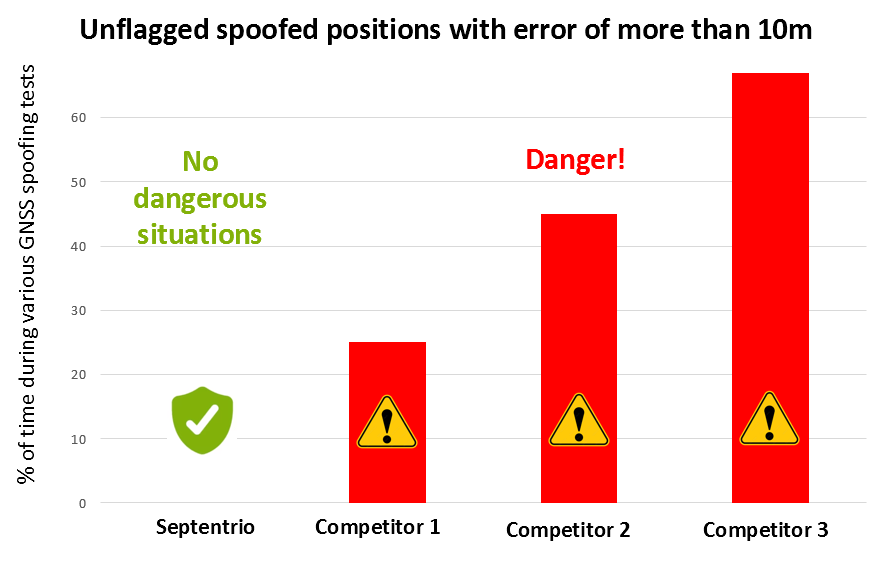
OSNMA Galileo signal authentication detects GNSS spoofing: During this spoofing attack the OSNMA authentication mechanism from Galileo detects spoofing, as seen in the receiver’s Web User Interface.
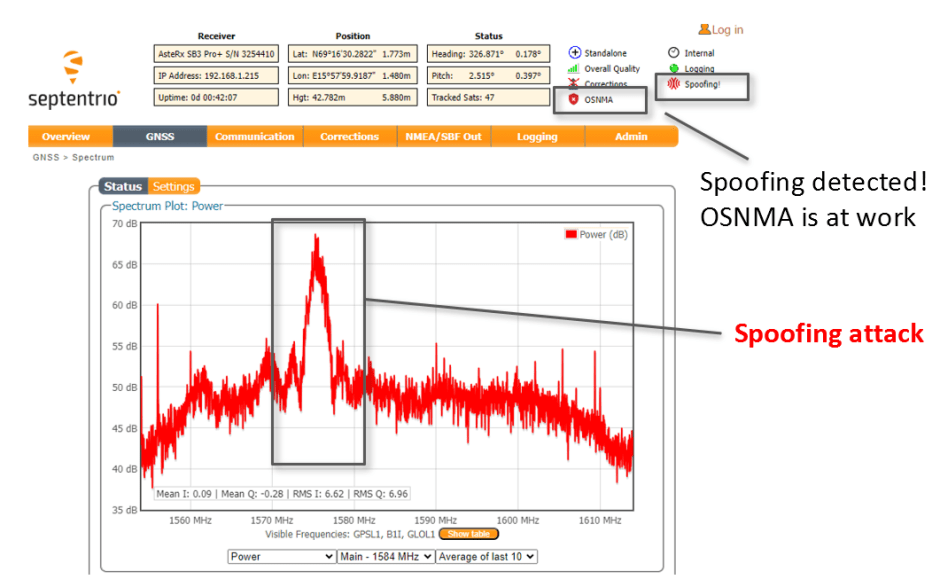
Explore the range of GNSS/RTK receivers which has Antijamming and Antispoofing features:
-
RTK3B Boards
simpleRTK3B Pro
From 569,00€ Select options This product has multiple variants. The options may be chosen on the product page
-
RTK3B Boards
simpleRTK3B mPCIe
From 575,00€ Select options This product has multiple variants. The options may be chosen on the product page
-
RTK3B Boards
simpleRTK3B Micro Septentrio
From 575,00€ Select options This product has multiple variants. The options may be chosen on the product page
-
Open Source HW
Septentrio MosaicHAT
From 648,00€ Select options This product has multiple variants. The options may be chosen on the product page
 and
and 

